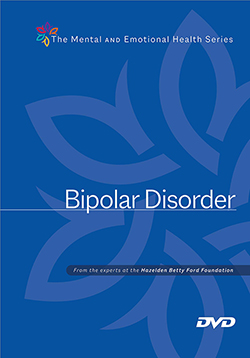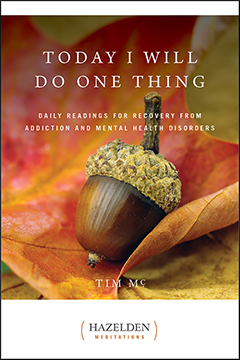Scope & Sequence Document
This document is available as a free download for your use.
The Mental and Emotional Health Series for Clients with Clinical Diagnoses is a flexible curriculum that allows you to customize and optimize the care you provide your clients who are diagnosed with a mental health disorder. Drawing on evidence-based approaches including acceptance and commitment therapy (ACT), cognitive-behavioral therapy (CBT) and dialectical behavior therapy (DBT), the complete series includes a facilitator guide, Bipolar Disorder video and workbook, and five other topic-specific workbooks and videos.
Help your clients with Bipolar Disorder Types I and II recognize and manage symptoms of mania, hypomania and depression. Paired with worksheets on mood tracking and triggers, Bipolar Disorder encourages clients to reflect on past episodes and determine when to seek assistance. Exercises on thought management help clients cope with racing, distressing and suicidal thoughts. Additional content discusses medication options and treatment plans to help clients understand the importance of adherence and regular monitoring.
Key concepts integrated throughout the series include:
- Understanding the science behind mental health disorders
- Relating mental health to different areas of life
- Identifying healthy coping strategies
- Challenging unhelpful thinking patterns
- Learning grounding and mindfulness techniques
- Discovering healthy habits to enhance well-being
- Developing assertive communication skills
- Planning for ongoing support
About The Series
Grounded in science and built with strengths-based therapeutic approaches,
The Mental and Emotional Health Series for Clients with Clinical Diagnoses encompasses six key modules:
- Anxiety Disorders
- ADHD
- Bipolar Disorder
- Depressive Disorders
- Suicide
- Trauma & PTSD
Examples and exercises help clients gain a practical and personal understanding of how mental health conditions affect different aspects of their lives. With a focus on identifying healthy habits and coping strategies, clients learn techniques and practices for grounding, mindfulness and assertive communication as well as managing medications, planning for ongoing support and relapse prevention.
All materials incorporate inclusive language. Reflection questions and exercises are designed for diverse learning styles.
Help your clients with Bipolar Disorder Types I and II recognize and manage symptoms of mania, hypomania and depression. This encourages clients to reflect on past episodes and determine when to seek assistance. Thought management help clients cope with racing, distressing and suicidal thoughts.




